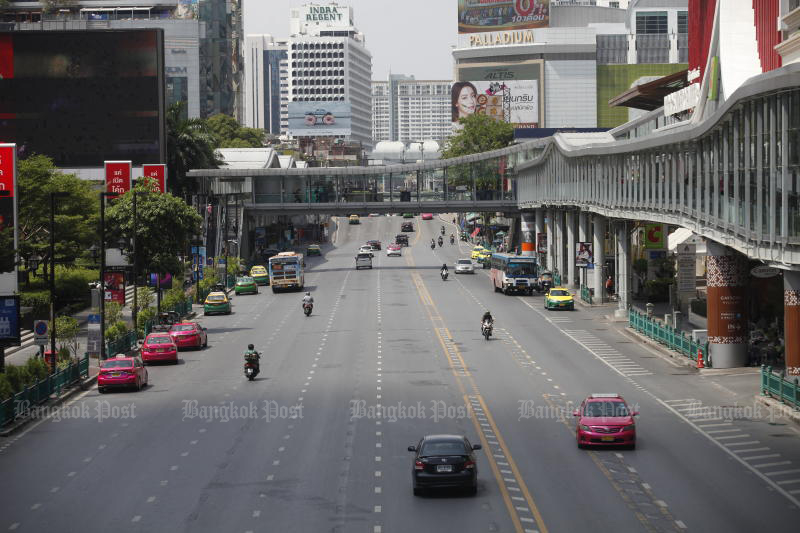
A majority of people think the government's "work from home" policy for employees in both the public and private sectors can help reduce the risk of contracting Covid-19, a survey by Suan Dusit Rajabhat University (Suan Dusit Poll) reveals.
The poll was conducted online on May 10-13 on 1,553 people throughout the country to compile their opinion on the "work from home" policy.
The survey found that during the Covid-19 pandemic 42.72% of the respondents worked from home; 34.45% worked both from home and in their office; and 22.83% did not work from home at all.
Asked about their attitudes towards "work from home", with each respondent allowed to select more than one answer, 74.82% said they felt safe and thought it could help reduce the spread of Covid-19; 48.60% thought it was a way of cooperating with the government; 44.05% said it allowed them to have more time for themselves and their families; 40.53% said they did not have the necessary equipment to work from home; and 39.04% said they missed the office atmosphere.
The respondents were then asked about the "favourable" and "unfavourable" aspects of "work from home".
Concerning the "favourable" points, 88.33% said it would help contain the spread of the novel coronavirus; 70.19% said it helped reduce travel costs; and 60.73% said it was a way of giving the government a helping hand.
On the "unfavourable" points, 65.80% said they had to pay more for electricity, water and the internet; 62.08% cited insufficient work equipment; and 45.97% mentioned slow communication and responses.
Asked to compare between "work from home" and "work in the office", 37.17% said they liked both equally; 36.13% preferred to work in the office; 18.10% preferred to work from home; and 8.60% had no comment.
Asked whether they thought "work from home" could really help constrain the Covid-19 pandemic, 82.66% said "yes"; 13.14% were uncertain; and 4.20% said "no".
The average success rating of the "work from home" policy evaluated by the respondents was 70.33%.

